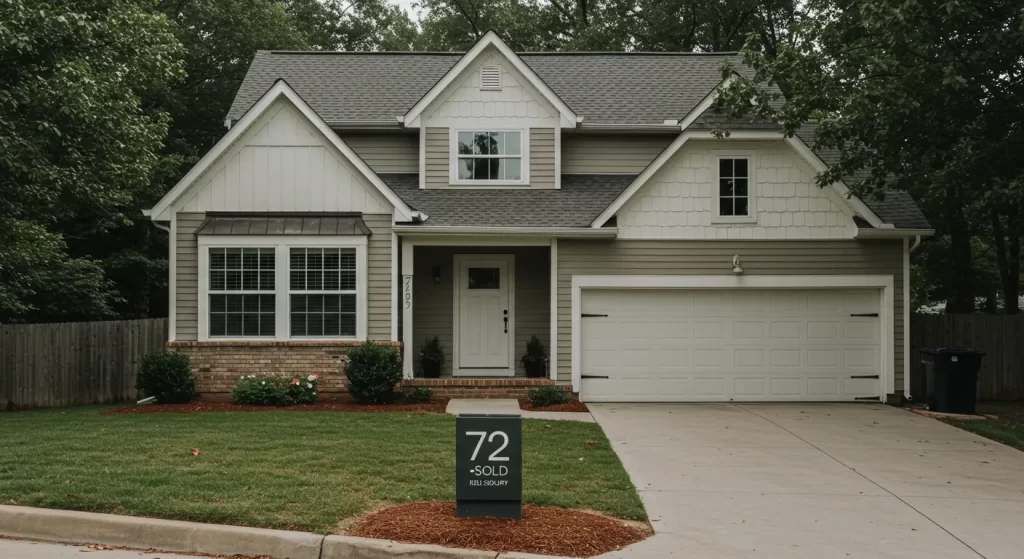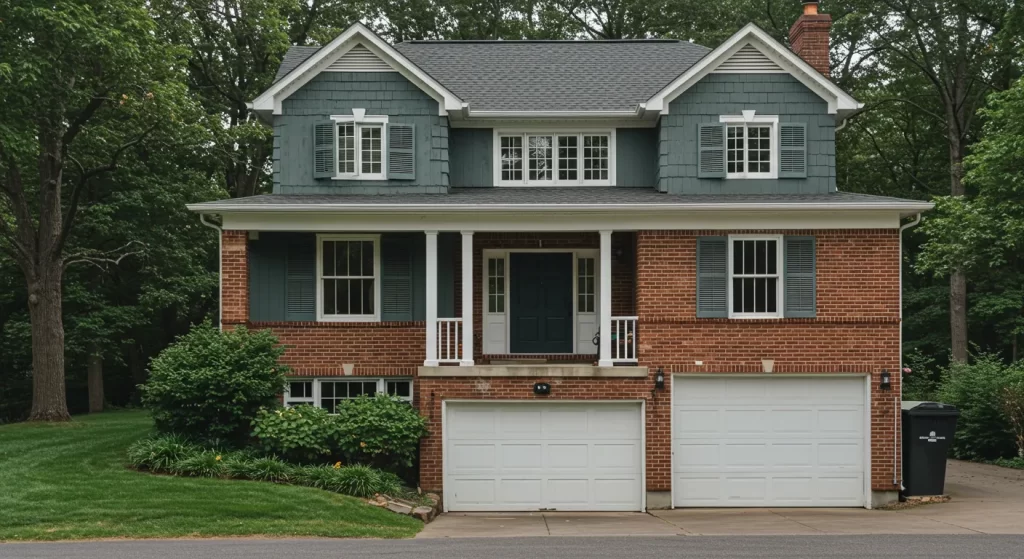Table of Contents
The real estate world is shifting fast. From changing commission structures to new selling models, homeowners are exploring fresh ways to close deals faster and earn more. Among the most talked-about names lately is 72SOLD.
Known for its bold promise to sell your home in just eight days, the company claims to offer sellers up to 10% more than traditional methods. But behind the flashy offers, there’s another story — including a high-profile lawsuit that’s raising eyebrows across the industry.
A Different Kind of Real Estate Pitch
72SOLD isn’t your typical real estate company. It markets itself as a fast-selling program, streamlining everything so homeowners can get their property off the market in just over a week. Their platform emphasizes convenience and speed, removing the long wait times and price haggling often associated with home sales.
At its core, 72SOLD is designed to give sellers a sense of urgency — think countdown clocks, marketing blasts, and scheduled open house windows that create bidding pressure. It feels a bit like an auction, but with more structure and a polished digital presence.
Promises That Sound Too Good?

The company promotes an enticing promise: that you can sell your home in eight days for roughly 8–12% more than the market average. It’s a strong marketing angle, but many real estate professionals question whether this is realistic or just sales fluff.
To be fair, some homeowners have reported success. They appreciated the fast timeline and a focused marketing push. But others claim the offers they received didn’t meet expectations, or that their homes didn’t sell within the promoted timeframe.
Also Read: LessInvest.com: Unlocking the Power of Smart Spending and Investing
The Hidden Costs You Might Miss
One area where 72SOLD has faced criticism is its transparency around fees. The company isn’t free — sellers often pay around 5–6% in commission, which is standard, but not always clearly outlined at the beginning. Some customers have said they were unaware of all the costs until late in the process.
This has led to frustration among those who thought the model might help them save more money. Instead, the costs turned out to be similar to — or in some cases higher than — working with traditional real estate agents.
Not Your Regular Brokerage

Interestingly, 72SOLD isn’t licensed as a real estate brokerage itself. Instead, it partners with local agents who are trained in the 72SOLD model. That means the service you get largely depends on the quality and experience of the agent in your area.
Some agents excel at the model and deliver great results. Others may be new to the system or less responsive. So, like most real estate experiences, your outcome may vary based on who you work with.
Training Programs and Controversy
Another layer of the story involves the company’s internal training and support programs. 72SOLD offers onboarding and training modules for agents who want to use their model. While some find these useful, there have been reports of dissatisfaction — including complaints that the material doesn’t justify the costs or isn’t thorough enough.
This brings up questions about the consistency of the service and whether the brand can maintain quality across different locations and agents. The situation even sparks conversations, with some drawing parallels to the standing on business meme trend, where individuals question whether something is truly valuable or if it’s all just about appearances.
Leadership and Legal Drama
In 2023, 72SOLD was named in a lawsuit involving Gary Keller, co-founder of Keller Williams, one of the nation’s biggest real estate firms. The case accused Keller of embezzling funds and placed 72SOLD as a co-defendant, adding a cloud of legal uncertainty to the company’s reputation.
While the lawsuit has not concluded, and no definitive findings have been made, its existence has already affected public perception. It’s important to note that being named in a legal complaint doesn’t necessarily imply wrongdoing — but it does raise concerns for some potential clients and agents.
Shifting Commission Structures

Another major factor influencing how 72SOLD operates is the recent change in how real estate commissions work. After a landmark ruling in the National Association of Realtors (NAR) case, commission fees in the U.S. are no longer bound by the same expectations.
This opens the door for negotiation — and for companies like 72SOLD to innovate, or possibly exploit, these changes. Sellers now need to be more vigilant than ever, ensuring they understand exactly what they’re paying for and what services they’re receiving in return.
Is Speed Worth the Trade-Off?
A big draw of 72SOLD is speed. But is selling your house in eight days always a good idea? It depends.
If you’re in a hurry — say, relocating for a job or facing financial pressure — the model might be appealing. But fast sales don’t always mean best prices. Some buyers may wait out the pressure tactic or offer less, knowing the seller is on a tight timeline.
The result? You could close the deal faster, but possibly at a lower net gain once all costs are accounted for.
FAQs
Is 72SOLD really faster than traditional selling methods?
Yes, it claims to sell homes in 8 days, but results vary depending on market conditions and home pricing.
Does 72SOLD charge more than regular agents?
It typically charges 5–6%, similar to traditional agents, but some users report unexpected fees.
Can I make more money selling through 72SOLD?
They claim you can earn up to 10% more, but there’s no guarantee, and outcomes depend on your home and market.
Is 72SOLD involved in any legal issues?
Yes, in 2023, 72SOLD was named in a lawsuit involving real estate figure Gary Keller.




